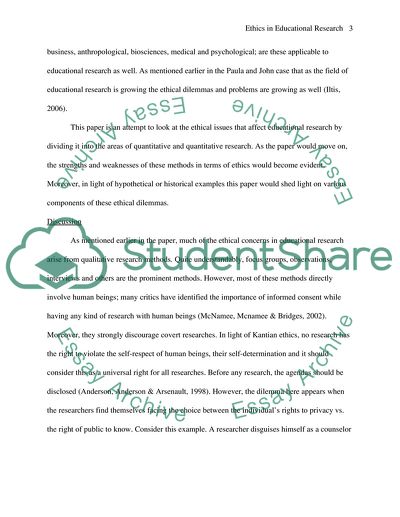Cite this document
(Ethics in Educational Research Paper Example | Topics and Well Written Essays - 2500 words, n.d.)
Ethics in Educational Research Paper Example | Topics and Well Written Essays - 2500 words. Retrieved from https://studentshare.org/education/1744090-reflection-ethics-in-educational-research
Ethics in Educational Research Paper Example | Topics and Well Written Essays - 2500 words. Retrieved from https://studentshare.org/education/1744090-reflection-ethics-in-educational-research
(Ethics in Educational Research Paper Example | Topics and Well Written Essays - 2500 Words)
Ethics in Educational Research Paper Example | Topics and Well Written Essays - 2500 Words. https://studentshare.org/education/1744090-reflection-ethics-in-educational-research.
Ethics in Educational Research Paper Example | Topics and Well Written Essays - 2500 Words. https://studentshare.org/education/1744090-reflection-ethics-in-educational-research.
“Ethics in Educational Research Paper Example | Topics and Well Written Essays - 2500 Words”, n.d. https://studentshare.org/education/1744090-reflection-ethics-in-educational-research.


